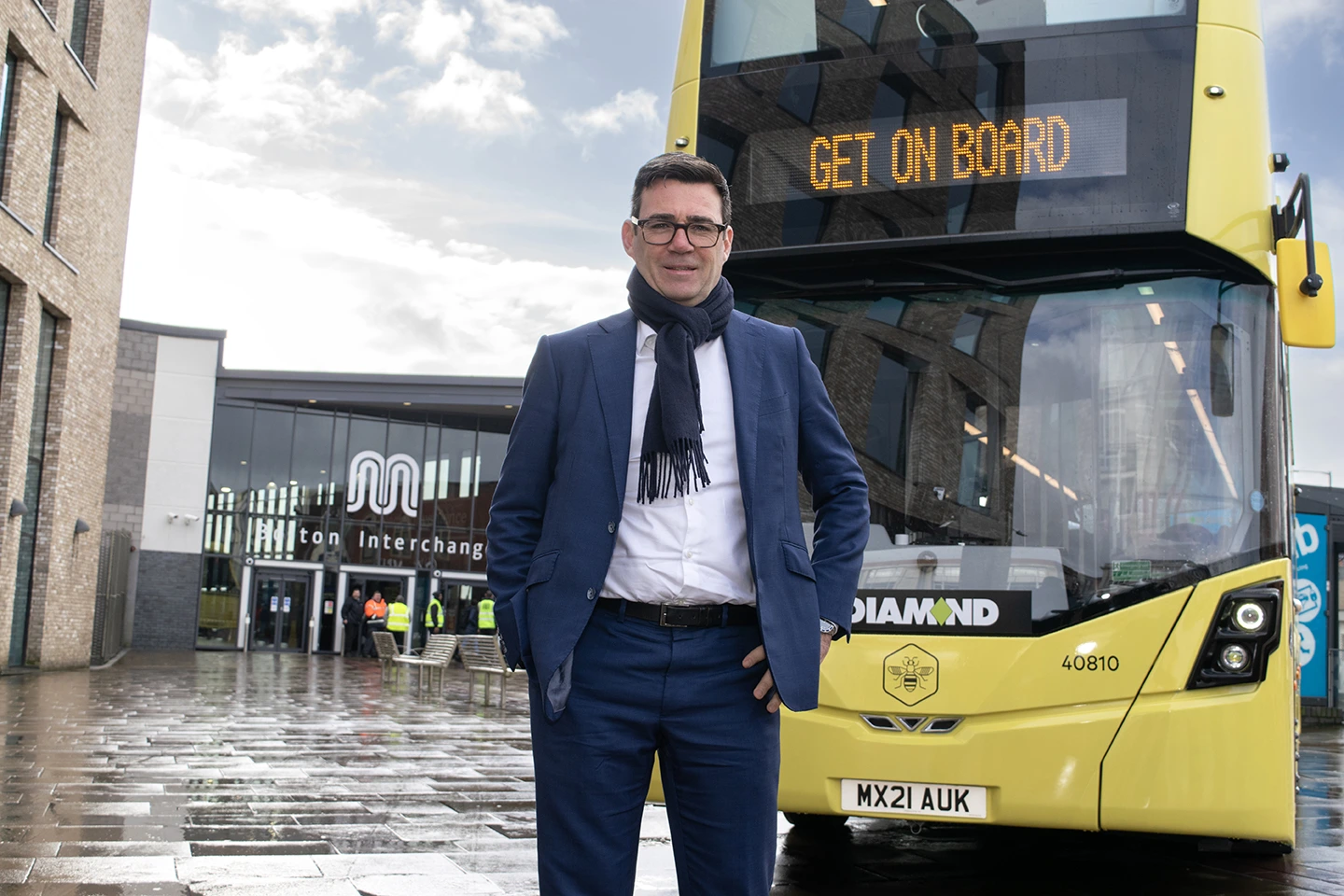
As part of ongoing efforts to decentralise aspects of British governance, ‘trailblazer devolution deals’ involve delegating more power and responsibilities to mayoral authorities in England, alongside simplifying their funding divisions and arrangements.

They were first introduced in a February 2022 Levelling Up White Paper and, one year later, Chancellor Jeremy Hunt announced two trailblazer devolution deals. The two areas affected by these deals have also been in the devolution field for almost a decade, but what do the new trailblazer devolution deals entail?
Where will it affect?
The two areas that will be affected by the trailblazer devolution deals are Greater Manchester and the West Midlands. The deals will grant extended responsibilities to the two regions, especially revolving around transport, skills, policy, housing and retrofitting.
These two areas will see more expansive devolved powers compared with other authorities, but Hunt declared it is his intention to involve more parties and expand single departmental settlements and business rates retention.
There are currently conversations to establish deals in the north-east too, in particular in the Liverpool City Region, and West Yorkshire and South Yorkshire, which will officially start negotiations later in 2023.
In order for other parts of the UK to be included in trailblazer devolution deals, there will need to be more negotiations between Whitehall and other combined authorities to discuss details.
What is the purpose of the deals?
The general purpose of trailblazer devolution deals is to heighten the powers of the regions’ combined authorities and, as Hunt explained, they aim to “level up wealth generation and opportunity everywhere”.
Andy Burnham, mayor of Manchester, said: “This is the seventh devolution deal Greater Manchester has agreed with the government and it is by some way the deepest. This deal takes devolution in the city-region further and faster than ever before, giving us more ability to improve the lives of people who live and work here.”
The new power aims to give regions the chance to develop and grow with strategies based on local priorities rather than national ones. For instance, one of Burnham’s projects is building Atom Valley, which is a high-tech manufacturing hub in Rochdale and Oldham.
Ultimately, the trailblazer devolution deals’ main objective is to rebalance the economy and democracy one region at a time, via both financial and strategic tools.
The Greater Manchester Combined Authority (GMCA) and West Midlands Combined Authority (WMCA) will also experience a change in funding. At the moment, they rely on a high number of individual funding systems, which are usually tied to specific projects. This entails separate and staggered communications with different Whitehall departments and is “fragmented, overly reliant on centrally administered funds and lacks clear, lean and proportionate accountability structures”, as the trailblazer deal outlines, which will need to change.
What do the trailblazer devolution deals include?
The main added responsibilities that both Greater Manchester and West Midlands will take on cover transport, education and environmental decisions.
When it comes to transport, the two areas will have greater decision power over local railway services thanks to a brand new partnership with Great British Railways, which entails the integration of rail travel among other means of transportation such as buses and trams in a bigger network.
In Manchester, this network is called Bee Network, which, according to the deal, should be active by 2030. In the West Midlands, a bus services operators grant will be devolved too. In addition, £60m of funding will be devolved towards a new metro line in the WMCA area. In Manchester, the government has provided £1.07bn to City Region Sustainable Transport Settlements until 2027, with the objective of bettering local transport connectivity across the region and the country to reach standards closer to London’s.
In the education environment, new funds will be dedicated to the adult education budget as part of the trailblazer devolution deals. For example, the Free Courses for Jobs programme will be funded by the new deals, as well as widening post-pandemic skills devolution. Both GMCA and WMCA will be responsible for co-designing future employment support programmes too.
With Manchester’s housing situation changing significantly in the past decade, with new apartment complexes, offices, hotels and venues, the city and the government both realised that there is potential. In order to deliver more quickly and more efficiently build new homes, especially regenerating lower-quality buildings, the trailblazer devolution deals will aim to use the land more effectively. It will do so thanks to £150m invested by the government for regeneration funding, with the objective of building 7,000 homes in seven years.
This is only one of the housing goals of the GMCA, which also includes an Affordable Homes Programme in collaboration with Homes England. WMCA also includes a similar plan, in which Homes England will make available £200m for the Affordable Homes Programme by March 2026 in the West Midlands, with the ambition of reaching £400m to build more social and affordable homes by the end of the same year.
The GMCA and WMCA will also collaborate in order to achieve net zero, thanks to flexible funding and improvement in energy efficiency. Both areas’ plans are quite similar, divided into nine main categories:
- strategic energy system planning
- networks
- local plans
- clean heat
- industrial decarbonisation
- energy efficiency
- climate adaptation
- natural environment financing
- air quality
Apart from these main focal points of the trailblazer devolution deals, other points are culture and tourism, digital infrastructure and public service reforms.
[Read more: Budget 2023: Regional winners and losers]






